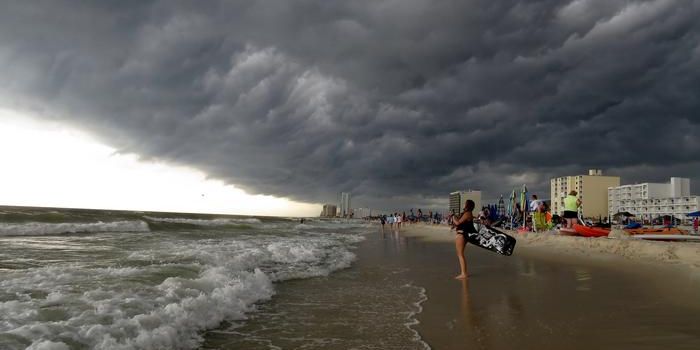Fishermen will pay jail time for illegal capture of 300 tons of sharks in the Galapagos
On August 13, Ecuadorian authorities succeeded in interrupting the biggest heist known to the treasured Galapagos Islands: they intercepted the Chinese Fu Yuan Yu Leng 999 which was crossing the Galapagos Marine Reserve with more than 6,600 shark corpses in its hull. Although it is illegal to pass through the marine sanctuary’s waters without a permit and catch, trade, or transport sharks there, the discovery of 300 tons of fish – many of which were endangered and protected hammerheads and silky sharks – was not necessarily a surprise. The black-market in Asia for sharks is thriving, due mostly to the demand for a delicacy called shark-fin soup. Experts estimate that global shark populations have decreased by over a quarter in the last decades.
Located almost 600 miles west of Ecuador in the middle of the Pacific Ocean, the Galapagos Islands and the surrounding marine reserve waters are known for its abundance of sharks. The region runs as a marine corridor for migrating and breeding sharks along the Eastern Tropical Pacific. Young sharks are particularly vulnerable outside of protected waters, and that fact that many of the sharks discovered were still babies suggests that they were caught illegally in the reserve.
An Ecuadorean judge from San Cristobal Island has sentenced the ship's three top officers to three years of jail time, while the 16 other members of the crew are to be jailed for one year. They were also fined a total of $5.9 million to be paid to the Galapagos National Park. The government reported that Ecuador will assume ownership of the boat and that the dead animals will be thrown out to sea.
Yet the men who will pay the price were likely not the fishermen who caught the sharks. One would need a lot of gear in order to catch such large numbers of sharks, (such as thousands of meters of thick fishing line, big, motorized winches, and piles of hooks) and the Fu Yuan Yu Leng 999 had none of that. This means that it was likely a “reefer” vessel, that received the illegal catch of smaller fishing boats.
Pelayo Salinas, a marine ecologist from the reserve’s Charles Darwin Research Station, says that it was luck that the vessel was caught, because it’s automatic tracking system was turned on, likely by accident.
Ecuadorian authorities say capturing the boat sets a precedent. “We demonstrated that we have the capability to capture that kind of vessel,” said Walter Bustos, the director of the Galapagos National Park. “Ecuador was the first country in the world that declared not only human rights, but nature rights, since 2008, in our Constitution. So, we are obligated to protect the lives of these fish.”
But the Galapagos Marine Reserve doesn’t have the funds to enforce the area the way they need to. “Resources are limited,” Salinas says. “The bad guys are every day making more money. Patrolling is expensive, especially for a country that is in economic crisis.”
And unfortunately, where natural resources are involved, so are big industries and politics. China provides roughly 60% of Ecuador’s funding, and some have accused Ecuador of being lenient with China when it comes to protection of timber and other natural resources in the Amazon rain forest, following National Geographic.
Sources: National Geographic, Quartz, Reuters, TeleSur TV, Straits Times









